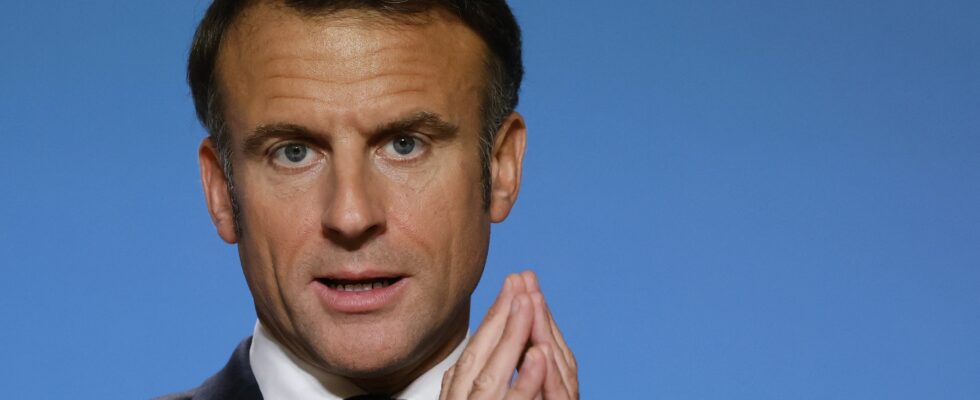The days when Emmanuel Macron reigned supreme over open spaces are long gone. Seven years ago, with 36% of the vote, executives (22% of the working population) were the first professional category to support Macronie in the first round of the legislative elections. Seven years later, the presidential majority recorded a loss of 10 points among white-collar workers. Those who see the glass half full will remember that between the European elections of June 9 and the first round of the legislative elections, the Ensemble list improved its score by 11 points among executives (the party had fallen to only 15% three weeks ago, less than the national average and half as much as in 2019). Perhaps the prospect of an RN in power counted…
Dissolution effect or not, one question remains: where have the executives gone who, in 2017 and to a lesser extent in 2022, had placed their hopes in the Macronist camp? If a tiny portion of them migrated to the left bloc, already very solid among executives (34% on June 30th against 33% in 2017), more are those who have taken the path of… National Rally. In the first round of the legislative elections, the party with the flame recorded an increase of 16 points compared to 2017. In the last European elections, the list led by Jordan Bardella even allowed itself the luxury of making 6 points more than Valérie Hayer and tied with Raphaël Glucksmann.
If we look at the figures closely, the RN’s discourse seems to be particularly successful among civil service executives. In fact, it is no longer only the C categories who are turning to the far right. “In the first round of 2022, 9% of category A agents voted for Marine Le Pen. Today, 24% of them are thinking of voting for an RN candidate in the first round of the legislative elections,” the Acteurs Publics website pointed out a few days ago. As for the European elections, 21% of them slipped a National Rally ballot into the ballot box and 8% a Reconquête ballot, according to a note published by Cevipof researcher Luc Rouban. With, an unprecedented fact, an increase in the RN vote within the State civil service, whose executives are said to be seduced by “a discourse on the authority of the State”.
And what about the rest of the executives? The pension reform was the first trigger for this distancing from the presidential majority: “Emmanuel Macron’s popularity rating among the upper middle classes really deteriorated at that time,” analyzes Mathieu Gallard, director of studies at Ipsos. “The anger against the head of state that had until then been concentrated on the working classes at the time of the yellow vests spread to some of the executives who then moved towards the RN, perceived as the strongest opponent of the president.”
Pension reform, this turning point
It is not so much the substance of the pension bill as the form that is in question. A reform conducted in a very vertical manner and with 49.3 by the government in place, not enough to seduce a category of the population “inclined to want more horizontality and compromise”, continues Mathieu Gallard. Laurent Dumanche, general secretary of the CFDT Cadres points out another methodological concern: “For executives, the problem is not so much working two more years as putting in place the conditions to work better, in order to do precisely these two additional years. However, in this case, the government has done things backwards”. The union leader thus refers to the question of “working better” that the government has put on the table, but only in response to the demonstrations against pensions. With what is more, as the only concrete advance, the experiment of the four-day week in the civil service and discussions around its extension to other sectors. Not enough to rekindle the flame of executive managers, whose studies that have followed one another in recent years have all pointed to a deep malaise. “They have increasingly difficult working conditions. In a digitalized world that is moving faster and faster, they are torn between the objectives assigned to them, their teams and contradictory injunctions”, describes Laurent Dumanche, who deplores the fact that the subjects touching on new forms of work such as hybrid organization, the right to disconnect and work-life balance are not themes fully supported by the parties, including those who propose to reverse the pension reform.
And what about the immigration law passed nine months later? The double kiss-cool effect for executives, according to Mathieu Gallard: “The combination of a social and societal element has not helped matters for these categories that are rather educated and open on this subject”. Which highlights as another possible repellant effect the “conservative perspective” of the head of state since 2022 on social issues, citing among other things “the Gérard Depardieu episode”. “All this gives the feeling that in recent years, Emmanuel Macron, who in 2017 embodied the center-left for part of the public, has sought more to hunt on the lands of a right that is both more liberal and conservative, explains Mathieu Gallard, but these are not ideological options that suit executives who are more on a social-democratic line.”
The last marker of executive voting: the wallet. Between 2019 and 2023, the latter have in fact lost more purchasing power than workers (Rexecode Institute). “There is a decline in executive salaries in light of the broader downward revaluation movement,” confirms Laurent Dumanche, who sums up their state of mind in these few words: “They have the feeling of being the forgotten ones in the sharing.”
.
